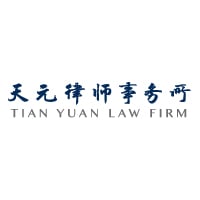

Head of compliance and international legal | Hisense Group Holdings



Yu Lihua
Head of compliance and international legal | Hisense Group Holdings
How do you approach managing legal aspects during periods of instability or crises to ensure the organisation’s resilience?
Managing legal aspects during periods of instability or crises is crucial to ensuring an organisation’s resilience, especially in the past couple of years. Some of the approaches I take are the following:
(i)Identifying the potential legal risks and vulnerabilities. I maintain a list of legal risks and vulnerabilities for each business group of the company and a combined one with the crucial ones only, review them regularly to stay on top of it.
(ii)Monitoring closely the changes in legislation and law enforcement related to the business to ensure the company remains in compliance with all applicable laws, particularly where there is conflict of regulations caused by geopolitical intentions. More importantly, stay ahead of the policy and track the new bills before they become law. I work with multiple international law firms and use them as an extra pair of eyes when it comes to the development of laws related to our business so I can be alerted if we need to act or make any adjustments across the business.
(iii)Establishing a cross-functional crisis management team with legal experts as key members, and having a crisis responding protocol in place, updated from time to time. With respect to matters with the highest degree of risk, I find a sound communication strategy and a draft statement very helpful for people to respond to worst-case scenarios.
(iv)Insurance is essential to mitigate risk and help with business continuity, especially in times of regional conflicts. Another area in which an insurance policy could be of extreme help is cybersecurity — one of the top ten risks for companies — even for the whole world in recent years.
(v)Lesson-learning and improvement mechanisms are useful to enhance future resilience based on my experience of post-crisis analysis. We always conduct thorough evaluation after a crisis to identify lessons learned and how to improve, then we update our policies and procedures, and provide training sessions to relevant departments to raise awareness.
Sticking with the above system is my philosophy of responding to instability with consistency of strategy.
What are the main projects that you have been involved in recently?
To support the globalisation of Hisense, I participated in the strategic planning of the ‘5+1’ Operational Headquarters, including the strategy compliance, operational compliance as well as supply chain compliance. I also provided legal support for the structure design of each Operational Headquarters, M&As and greenfield investment outside China.
ISO 37301 Compliance management system certification: I led the team to improve the compliance management system of Hisense Group, which is assessed and certified as meeting the requirements of ISO 37301:2021. By adopting IT systems and digital tools, we have put all the key compliance control points into the business workflow, which enhanced both the efficiency and effectiveness of compliance management.
What is a topic (business-related or otherwise) that you are passionate about, and why?
I am passionate about being involved in the strategic planning of Hisense because this is where a legal professional can contribute from the top. Once compliance and legal considerations are reflected into the long-term strategy of a company, all the compliance and legal risk control will fall into place. Another reason is that managing compliance and legal aspects of the strategy of USD$ 30 bn company is quite challenging, on the other hand, I am never bored!
How do you build relationships with other teams in the company?
I have been dedicated to building relationships with other departments within the company since I created the compliance and international legal department. We use a shared platform for legal requests but have assigned specific counsel for each region or subsidiary to build trust and familiarity. In addition to the day-to-day work and informal communication with other teams during coffee break, my team keeps monthly or quarterly meetings with management of subsidiaries, depending on the size and risk of the subsidiary, to raise awareness of legal risks, progress of legal matters and obtain support from them. We also provide on-stop shop solutions for other teams, including proactively engaging with them to offer guidance, manuals and training before issues happen, working with them side by side to resolve issues, analysing the issues once resolved. By fostering a sense of partnership, we contributed to the performance of other departments. Not surprisingly we receive quite positive feedback in our internal client satisfaction survey. Among those who participated, 89% of them believe our services are good or great.